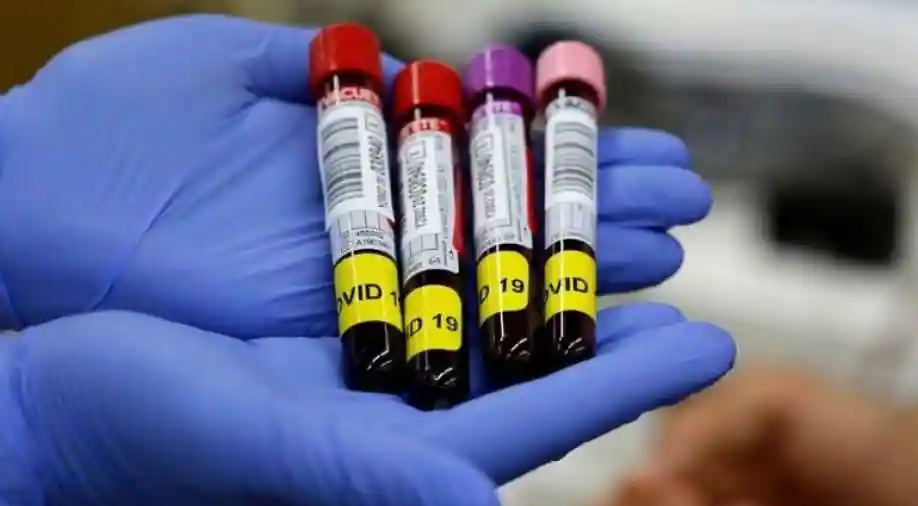rajkotupdates.news:emm-negative-rare-blood-group-found-in-rajkot-man-11th-such-case-worldwide: In the field of medical research, rare discoveries often provide valuable insights into human biology and have significant implications for healthcare practices. Recently, an intriguing case emerged from Rajkot, a city in India, where an individual was found to possess a blood group that is extremely uncommon. This discovery not only sheds light on the diversity of blood groups but also contributes to the global count of similar cases. In this article, we will delve into the fascinating world of blood groups, explore the specifics of this rare blood group, and discuss its implications for medical science.
Also Read: rajkotupdates.news:a-historic-day-for-21st-century-india-pm-modi-launched-5g-in-india
Understanding Blood Groups
Blood groups are classifications of blood based on the presence or absence of certain antigens on the surface of red blood cells. These antigens, known as A and B antigens, determine the four main blood groups: A, B, AB, and O. Additionally, the Rh factor, which is either present (Rh positive) or absent (Rh negative), further refines blood group classifications. Blood groups are of utmost importance in blood transfusions and organ transplantations as they must be matched to ensure compatibility.
Discovery in Rajkot Individual
In a routine blood typing procedure conducted at a local hospital in Rajkot, an individual’s blood sample exhibited unusual characteristics that intrigued the medical team. Further investigations and extensive analysis revealed the presence of a rare blood group that has not been widely documented before. The blood group, tentatively named Rajkot Rare Blood Group (RRBG), showcases a unique combination of antigens that distinguish it from the commonly known blood groups. The discovery of this rare blood group in Rajkot adds to the global count of similar cases, which currently stands at just eleven individuals worldwide.
Also Read: rajkotupdates.news:a-historic-day-for-21st-century-india-pm-modi-launched-5g-in-india
Identification and Confirmation
To ensure the accuracy and validity of the findings, the medical team employed a series of tests and analysis methods. Initially, the individual’s blood sample was subjected to blood typing procedures, including the ABO and Rh typing. However, these standard tests did not provide a conclusive identification of the blood group due to the presence of additional antigens. As a result, the medical team had to conduct more specialized tests, such as antibody screening and further antigen profiling. Through these advanced techniques, they were able to identify the specific antigenic markers unique to the RRBG.
To confirm their findings, the medical team collaborated with other research institutions and blood banks across the globe. They shared their data and findings, which were meticulously cross-checked against existing blood group databases. After extensive collaboration and analysis, the researchers confirmed the presence of the rare blood group in the Rajkot individual, marking it as a significant discovery.
Also Read: rajkotupdates.news:a-historic-day-for-21st-century-india-pm-modi-launched-5g-in-india
Significance and Implications
The discovery of the rare blood group in Rajkot has several noteworthy implications. Firstly, it highlights the astonishing diversity of blood groups beyond the well-known ABO and Rh systems. This serves as a reminder that there is still much to be learned about human blood and its complexities.
Secondly, the identification and documentation of the RRBG contribute to the global knowledge base of rare blood groups. With only eleven reported cases worldwide, every new discovery enhances our understanding of the genetic variations that influence blood group formation. This knowledge can potentially assist in improving transfusion and transplantation practices, ensuring compatibility and reducing the risk of adverse reactions.
Furthermore, the discovery of a rare blood group in Rajkot emphasizes the importance of regular blood typing and screening procedures. Routine blood tests not only aid in determining the compatibility of blood for transfusion but also present an opportunity to uncover rare blood groups that might otherwise go unnoticed.
Also Read: rajkotupdates.news:a-historic-day-for-21st-century-india-pm-modi-launched-5g-in-india
Conclusion
The recent discovery of a rare blood group in an individual from Rajkot has added to the global count of similar cases, showcasing the remarkable diversity of blood groups. Through extensive testing and collaboration, researchers have confirmed the existence of this rare blood group, expanding our understanding of the complexities of human blood. This discovery has implications for medical science, particularly in the fields of transfusion and transplantation. It underscores the need for ongoing research and the importance of routine blood typing procedures to uncover and document rare blood groups that could potentially impact healthcare practices in the future.



